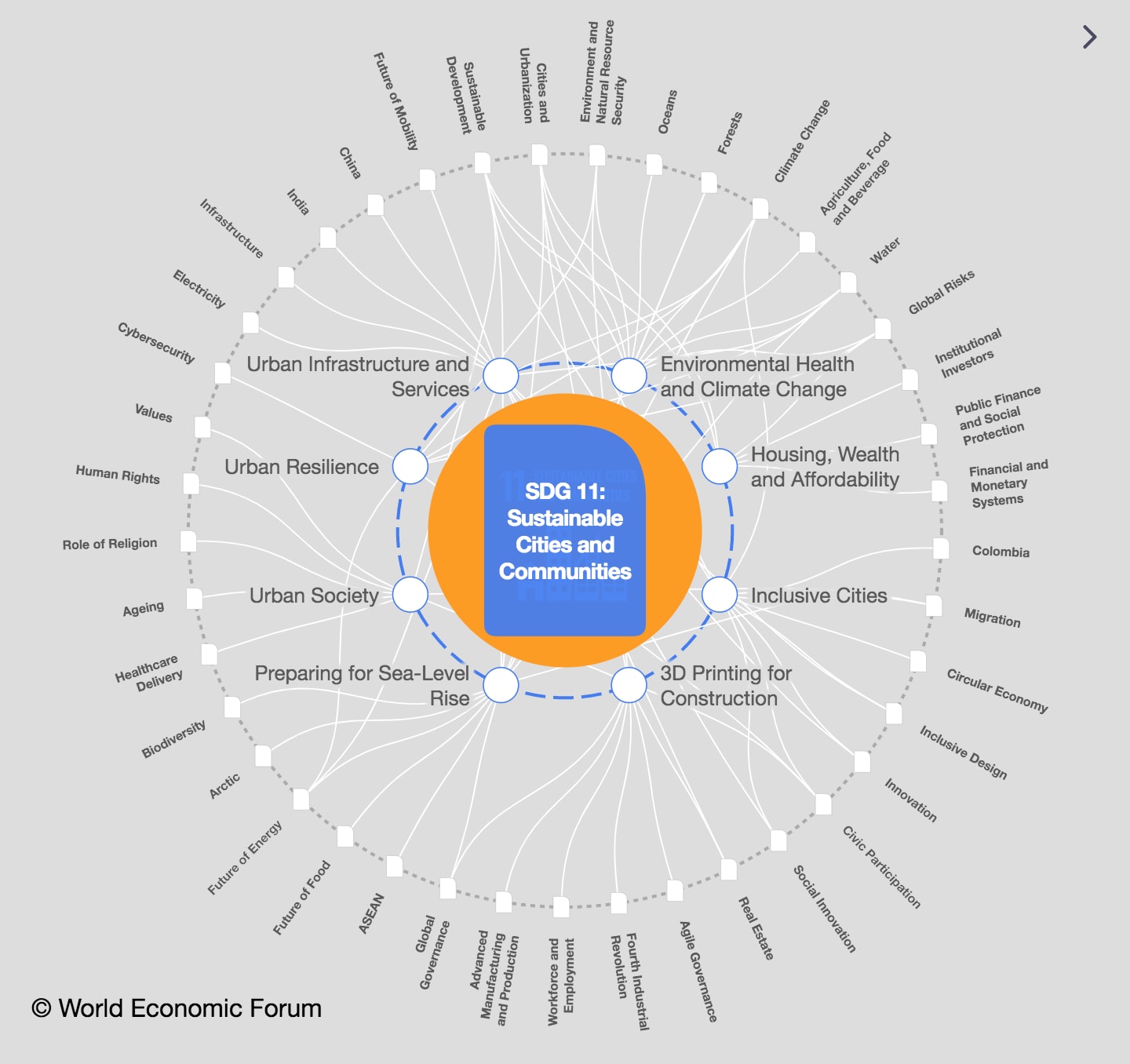Why urban gardens are a lifeline for the world's pollinators

Urban areas might be better for pollinators than previously thought. Image: Unsplash

Get involved with our crowdsourced digital platform to deliver impact at scale
Stay up to date:
SDG 11: Sustainable Cities and Communities
- Nectar, found in flowering plants, is a vital food source for pollinators.
- The agriculture industry is replacing flowering plants in the countryside with cereal crops and ryegrass, putting pollinators at risk.
- Research has found there are more kinds of flowering plants producing nectar in towns and cities than in the farmland and nature reserves measured.
- This increases the importance of urban gardens, which account for 90% of nectar found in cities.
As humans have industrialised farming to feed a growing global population, pollinators – animals vital for plant reproduction – have seen their food supply decline. In the UK, intensive agriculture has eroded biological diversity in large portions of the countryside, with vast swathes of cereal crops and ryegrass pastures now replacing flower-rich habitats.
For pollinators such as bees, hoverflies and butterflies, a loss of flowers means a loss of the nectar and pollen that makes up their food. A reduction in the diversity and quantity of this food is an important factor in the widespread decline of their population numbers.
However, pollinators may have an unlikely saviour: cities. Although traditionally regarded as ecological wastelands, urban landscapes can support diverse pollinator populations. Our new research, conducted with colleagues at the universities of Bristol, Cardiff, Edinburgh, Northumbria, Reading and the Royal Horticultural Society, investigated the nectar production in different urban areas to see how they compared with one another and with rural habitats.
We found that urban areas are not so bleak after all. They offer comparable resources to rural habitats, with gardens providing nectar-rich oases to support our pollinating insects.
Urban potential
In the UK, 83% of the population now live in an urban area. These landscapes are complex patchworks of different land uses, from green spaces like parks and gardens to pavements and car parks.
For our study, we measured how much nectar flower species make, by sampling in a range of urban environments including private and botanical gardens, allotments and road verges. We also made use of other published studies on nectar production in order to compare our findings with the nectar quantity and diversity of rural areas.
Measuring nectar is fiddly work, but it is fascinating to see how flowers have evolved different strategies for supplying insects with their reward. Using a thin glass capillary tube, roughly mimicking a bee’s tongue, we extracted nectar and measured its volume – sometimes less than a hundredth of a raindrop.

Next, we needed to work out the sugar concentration, which we achieved using a refractometer. This clever piece of equipment, commonly used by brewers, measures the amount light bends when passing through a solution and tells you how much sugar is dissolved. Nectar can be 60% sugar by weight – the equivalent of putting 100 spoonfuls in your cup of tea. After repeating this process on more than three thousand flowers, we were able to scale our nectar calculations up to look at entire sampled habitats.
Our findings suggest that urban landscapes are hotspots of nectar diversity. This means that there are more kinds of flowering plant producing nectar in towns and cities than in the farmland and nature reserve sites we measured. Just like in humans, a balanced diet is important for keeping pollinators healthy, helping them to fight off diseases.
On top of that, flowers have different colours, smells, shapes and sizes, and pollinators vary in their preferences. For example, butterflies like to feed from thin, tubular flowers with a sweet fragrance, like buddleia, but hoverflies need easily-accessible nectar, like that found in carrot flowers. Knowing that urban landscapes provide an especially diverse array of flowering plants is important as it means they have the potential to support a wide range of pollinator species.
The importance of gardens
Spaces within towns and cities differ greatly in the amount of energy-rich nectar they produce. For a given area, residential gardens make a similar quantity to allotments, but four times as much as public parks. Overall, because gardens are both nectar-rich and extremely widespread – covering around 30% of urban land – they produced an average of 85% of all the nectar in the four towns and cities we surveyed (Bristol, Edinburgh, Leeds and Reading).
Don't miss any update on this topic
Create a free account and access your personalized content collection with our latest publications and analyses.
License and Republishing
World Economic Forum articles may be republished in accordance with the Creative Commons Attribution-NonCommercial-NoDerivatives 4.0 International Public License, and in accordance with our Terms of Use.
The views expressed in this article are those of the author alone and not the World Economic Forum.
Related topics:
The Agenda Weekly
A weekly update of the most important issues driving the global agenda
You can unsubscribe at any time using the link in our emails. For more details, review our privacy policy.
More on Nature and BiodiversitySee all
Roman Vakulchuk
April 24, 2024
Charlotte Kaiser
April 23, 2024
Jennifer Holmgren
April 23, 2024
Agustin Rosello, Anali Bustos, Fernando Morales de Rueda, Jennifer Hong and Paula Sarigumba
April 23, 2024
Carlos Correa
April 22, 2024
Nick Pickens and Julian Kettle
April 22, 2024






